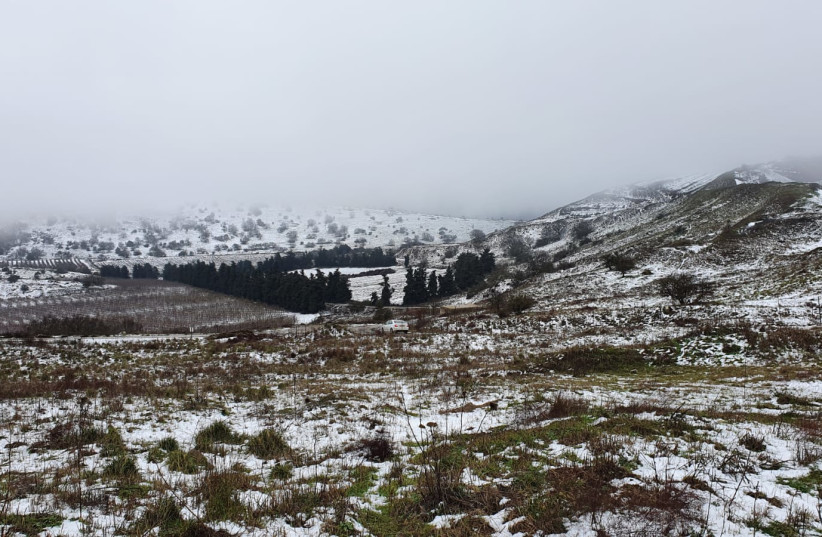Snow began falling in areas throughout Israel on Wednesday as the winter weather had been reported from the North heading southward, including to Jerusalem.
This is part of a wave of cold weather and temperatures that is seeing a demand in electricity skyrocket. In fact, The Electric Company reported on Wednesday evening, that the electricity consumption for the day broke the record for any other winter day in Israel's history.
Snow piled up in parts of the Golan Heights including Mount Hermon and the Hermon management announced that they will open the skiing trails on the mountain on Friday after they measured 50 c.m. of snow.
A decent layer of snow fell in Manara Cliff, and the manager of the Manara Lodge encouraged people to come and experience a winter vacation.
Light snow was also spotted in parts heading southward. This includes parts of the Galilee, such as Mount Meron and Safed, and in the Gush Etzion area, such as the settlement Neve Daniel.

The snow was welcomed in Gush Etzion, with the local council having prepared in advance.
In a statement, Gush Etzion Council head Shlomo Ne'eman invited the people of Israel to visit during this snow, but to drive carefully.
According to Maariv, snow mixed with rain has even been spotted in high-rise neighborhoods in Jerusalem.
Other parts of the country experienced rain and high winds. According to the Israel Meteorological Service, the rain will gradually weaken overnight, with Thursday set to have light rain and a slight chance for snow overnight. The temperature, however, will still be between 1-7 degrees Celcius, which the Israel Meteorological Service deems "unreasonably cold."
Schools up north were closed on Wednesday and planned to be closed on Thursday too.
This high demand for electricity amid the cold temperatures has already seen consumption skyrocket and could result in disruptions in electricity supply.
It is also possible that the electricity supply could be further disrupted by the weather, which could damage the power grid.
The Kinneret rose by 1.5 c.m. due to the heavy rains.
